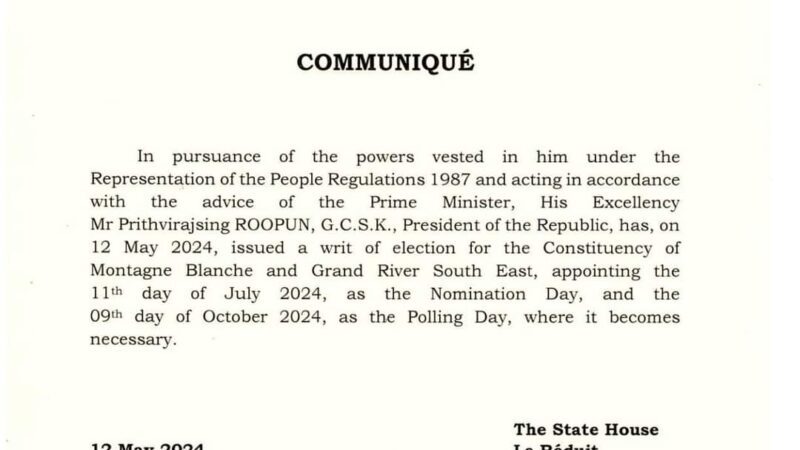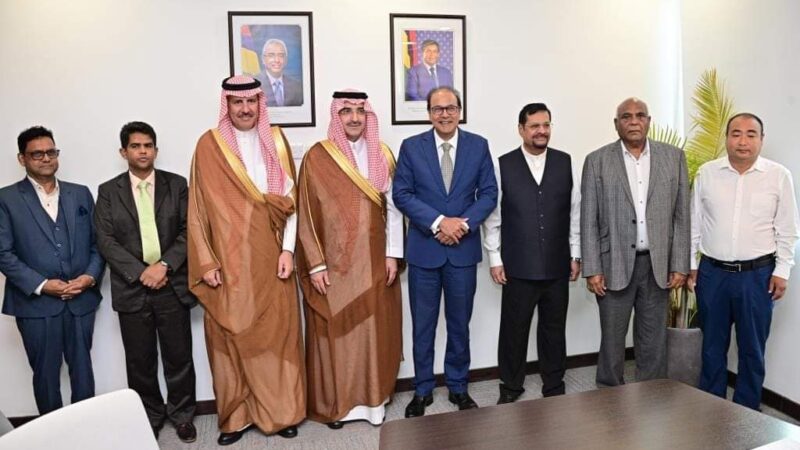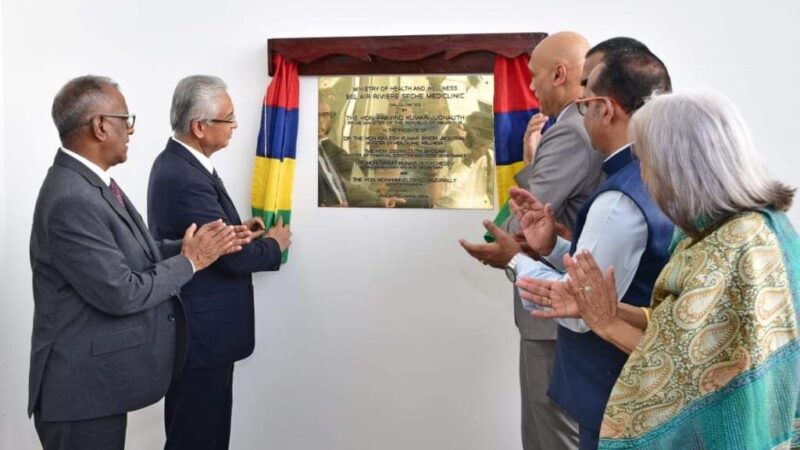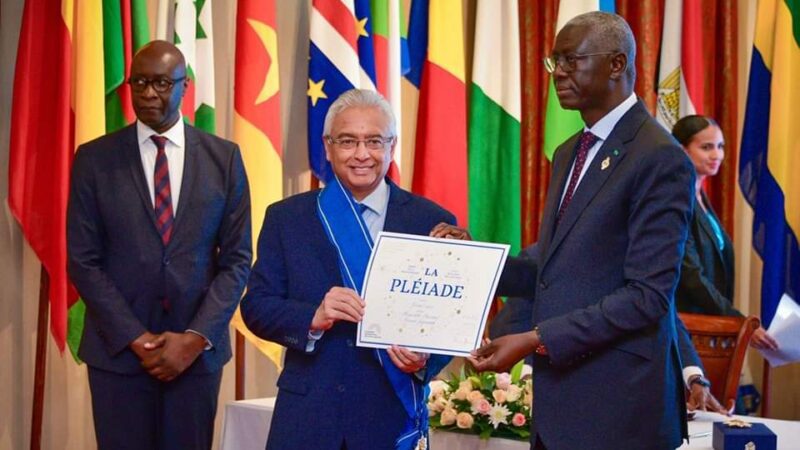A Cultural Exchange Programme (CEP) aiming to promote the sharing of cultural heritage and enhance the friendly ties between Mauritius and India, was signed, in presence of the Minister of Arts and Cultural Heritage, Mr Avinash Teeluck, at the Beekrumsing Ramlallah Interpretation Centre, Aapravasi Ghat, in Port-Louis.
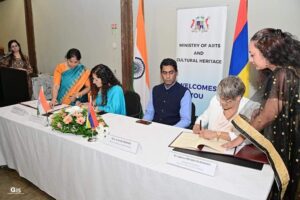
The High Commissioner of India to Mauritius, Mrs K. Nandini Singla, was also present at this initiative of the Aapravasi Ghat Trust Fund (AGTF) in collaboration with the Ministry of Arts and Cultural Heritage.
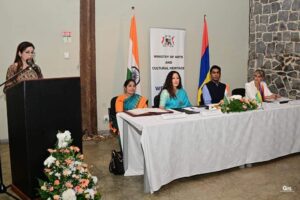
In his address, Minister Teeluck highlighted that India is one of the few countries to have assisted Mauritius in major infrastructure and socio-economic development projects, namely the new ENT Hospital; the Supreme Court Building; and the National Library and the National Archives. The support of the Government of India to Mauritius has been vital in confronting the COVID-19 pandemic and protecting the population, he said.
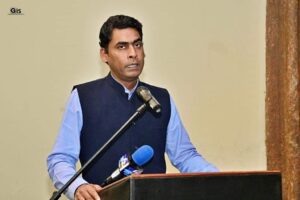
According to him, the relationship between Mauritius and India is special as it is based on mutual trust, common values and traditions, and a rich legacy. “Our ancestors from India have also brought with them a culture of discipline, hard work and perseverance that has shaped the Mauritian landscape”, stated the Minister.
He expressed his gratitude to India for facilitating the exchange and sharing of knowledge and technical know-how in artistic field and digitalisation. Various aspects, he added, are also being covered in this agreement including cultural trips, artistic exhibitions, exchange of artefacts, training for staff of the Mauritius Museums Council in Museography, conservation of cultural property and digitisation of objects as well as a 50% subsidy on musical instruments.
Minister Teeluck underlined that Mauritius is proud to be part of the G20 Summit. He is confident that the event will further reinforce the existing cultural and bilateral ties between the two countries.

As for Mrs Singla, she spoke of the inextricable link between the both countries while adding that the agreement is at the very heart of the special relationship between India and Mauritius. She indicated that the foundational cultural agreement between the two parties was signed in 1973 with the aim to preserve the shared culture for future generations.

The agreement, she mentioned, will provide a better framework for the provision of experts and training courses through the Indian Technical & Economic Cooperation. According to her, the CEP will enable the digitalisation of arts and micro filming, exchange of Braille books for visually impaired individuals in oriental languages and further enhance collaboration between the AGTF, the National Heritage Trust Fund and the Archaeological Survey of India for research and conservation of cultural and historical property.
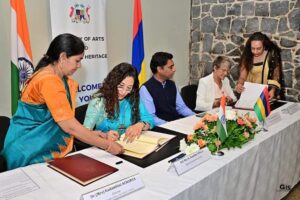
It is recalled that the previous CEP was signed on 11 March 2015 and it covered exchanges in, inter alia, the fields of folk art, fine arts, theatre, dance, film, museology and drama.



